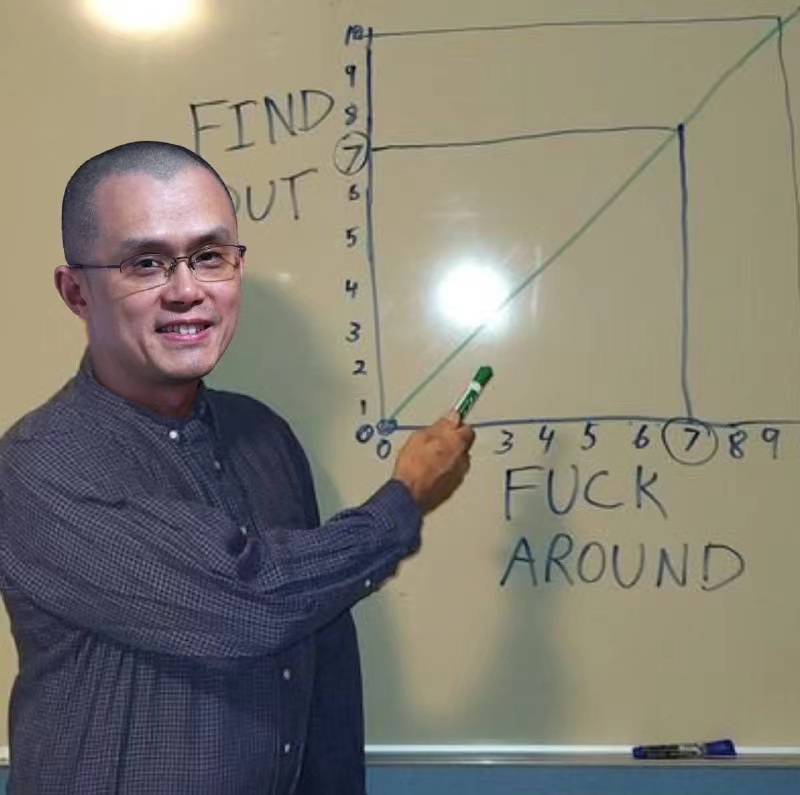This article comes from MediumThis article comes from

Recently, Andre Cronje, the founder of Yearn.finance posted pictures on his social platform suggesting that he may come back. In addition, Andre Cronje updated his position on his LinkedIn page, showing that he will start serving as Vice President of Memes at Fantom Foundation in November 2022. AC, which has been silent for a long time, made a voice today, summing up a lot of past lessons (and using CZ's photo as the cover image), is it to provide some industry advice for Binance and FTX?
secondary title
pit i stepped on
Fantom - Token economy. The teams themselves don't have enough funding, and the "top 10" projects are all highly centralized and controlled token economies. Investors (especially retail investors), plan for this.
Yearn - I feel more like the person planting the seed than the founder, cultivating a more capable community to take over.
Eminence - don't test it in production. Testing works in the early days, but it doesn't work when the product is fully released. I used to use the same testing method when I took the project from 0 to 1 in the past.
Keep3r - Manage expectations. I knew from day one that Keep3r would never reach the scale Fantom aspired to be, a small, accessible, decentralized Devops platform. It did, but people were looking forward to another Yearn or Keep3r. People were happy with the (product) results, but disappointed with the expectations and pressure it brought to the token economy.
Solidly - its AMM is awesome, I'm still very happy and proud of its design, but decentralization is the point of failure, you can't have decentralization and complexity at the same time. Successful forks from Solidly's code base have all focused user participation in some way. Simple cases can be decentralized, but complex cases cannot. Participants are irrational and their actions are not in the best interest of the ecosystem. If you don't build in punishment mechanisms, chaos will ensue.
secondary title
Don't get caught up in other people's narratives
At one point, the Fantom Foundation wallet was worth more than 1.5 billion euros. Then there were rumors that I withdrew a billion dollars from crypto due to my connection to these wallets. It's false, but because I don't tweet back against the false claims, people assume it's true. I posted a meme about the metaverse, next I should build the metaverse on Fantom.
Social media tends to push the envelope so the most ridiculous stories become true unless you are prepared to defend anyone in a violent and aggressive way.
Beware of those who will violently and aggressively attack anyone who speaks out against their lies. I hope to block this kind of narrative, but the problem is that blocking them is also a narrative.
Don't deify people or projects, accept blame and discuss shortcomings, that's the only way to grow.
Don't assume that what works on a small scale will work on a large scale.
When I spend 20 hours a day building a Fantom consensus, or 20 hours a day trying to perfect a Yearn strategy, I never think about the end result, I just enjoy the process. At a certain point in the Fantom & Yearn project, I became more concerned with the outcome than the process. If you're obsessed with the outcome, it can make you scramble, which leads to mistakes that take away from the fun in the process.
secondary title
feedback loop
Be careful what others say about you.
Carefully analyze the feedback you get and try to find the most objective feedback possible. Avoid the typical "survivor bias".
secondary title
lesson i learned
Stick to your own rhythm.
Don't seek attention. The crypto industry loves to kill off the "protagonist".
Enjoy the process, not the result.
Avoid feedback loops that are too subjective.
Don’t get caught up in your competitor’s narrative, if you don’t think something will work but you see it working for your competitor, let it go.
Don't think you're wrong just because their design currently works.
Go back to the basics, adhere to the mentality of long-term honing, and continue to challenge at work.
We used all of the above methods at Fantom, we tried several times to replicate the narrative of the competing L1, but failed every time.
I have always liked a quote from one of the greatest DeFi founders who I think, when we discussed most of the narratives that happened in the past 4 years, he told me: "It works at first, and it doesn't work until it fails" (It works, until it doesn't).